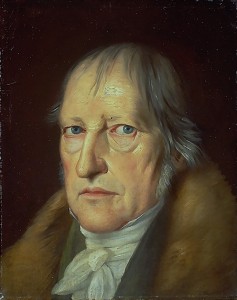 There is a contemporary scholarly consensus that the Popperian characterization of Hegel’s politics as totalitarian is mistaken.
There is a contemporary scholarly consensus that the Popperian characterization of Hegel’s politics as totalitarian is mistaken.
However, Roger Scruton also rejects the view put forward by many Hegel scholars that Hegel is some form of liberal and or communitarian thinker.
Rather, Scruton argues that Hegel’s vision of the state is best characterized as a form of classical conservative political philosophy. While there are some who argue that attempting to characterize Hegel’s political philosophy at all is a meaningless endeavor, it is argued in this paper that this is not so.
Instead, this paper seeks to add certain original insights to Scruton’s project of characterizing Hegel as a conservative political thinker. Specifically, it is asserted that Russell Kirk’s six “canons” of traditional conservatism line up with Hegel’s political philosophy on almost all points, and that this comparison sheds light on the current debates about how to characterize Hegel’s politics.
It is concluded that the Hegelian state is rightly seen as in line with the conservative tradition and is an attempt at a careful political balance which calls for an equilibrium between such values as liberty and order, individualism and community, equality and hierarchy, reason and tradition, and progress and stability.
Autor: Stephen Hudson.
